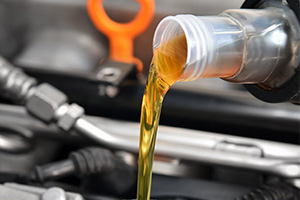As we know engine oil is lubricant for our engines to reduce friction and wear. But engine oil are also required by engine for optimum performance. Apart from lubrication, engine oil does some of the critical function like Cooling engine parts, Cleaning impurities like carbon and Rust prevention from the moisture and acidic gases generated during the combustion.
Normally engine oil are mineral, synthetic and semi-synthetic types. All of these are made from crude oil extracted from ground. Only difference between these oils are synthetic oils are more refined than mineral oil with more customized molecules which enables them to withstand at extreme conditions.
Engine oils are classified by its grade and standard. SAE (Society of Automotive Engineers) grades the oil according to its viscosity index with a numeric code system. It is further classified into single and multi-grade oils.
Single grade oils are normally denoted by a single numeric value for example SAE 30, SAE 50. The viscosity of oil increases with increase in its numeric value. To broader the operating temperature range multi grade oils are used for example SAE 20W40. This kind of oil acts with characteristics of both oil grades mentioned. At colder temperature it acts like oil of low viscosity with smaller numeric value whereas at higher temperature it acts as high viscous oil which is higher numeric value.
Apart from this oil is also classified according to its quality standard. API (American Petroleum Institute) evaluates the oil with different parameters and give its standards for petrol and diesel engine oils separately. Engine oils starting with ‘S’ is classified for petrol engines whereas ‘C’ stands for Diesel engines.
Now a days SJ, SL and SM are widely used in petrol engines which have good oxidation resistance property with properties of minimizing carbon deposit and better wear protection.
Apart from this International Lubricant Standardization and Approval Committee (ILSAC), ACEA (Association des Constructeurs Européens d’Automobiles) Europe, American Society for Testing and Materials (ASTM) and Japanese Automotive Standards Organization (JASO) also standardize oils in different parameters.

